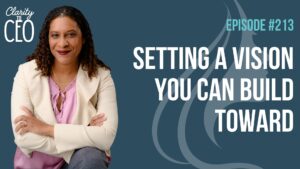“You can’t control everything. Sometimes you just need to relax and have faith that things will work out. Let go a little and just let life happen.” — This great quote by Kody Keplinger is just one of many quotes that have inspired me. Over time this quote has helped me to relax and stop trying to control everything around me. The more stuff I had on my plate, the more crowded and out of balance I got. And this includes how I use social media. How is your social media consumption affecting your mental health?
How Social Media is Changing Society
Social media has become an integral part of the way we live. It has made it easier to connect with people and share information. We are more connected than ever before and have access to more information than ever before. This affects the way we live our lives, how we think, and how we act.
There are many different ways that social media is changing society today:
- It’s making us more connected to other people in society
- It’s making us more connected to brands that advertise on social media
- It’s making us less likely to be face-to-face with one another
- It’s impacting the value and depth of our conversations with friends and family.
These have really changed the dynamic of the relationships we are forming and the connections we are making. Even our face-to-face moments are often interrupted by capturing a selfie and recording the time, rather than just enjoying the moment.
Social Media’s Effects on Our Psychology
Social media has been a part of our lives for a while now. It has become an integral aspect of our lives, and it is not going anywhere anytime soon.
It is essential to understand the effects of social media on our psychology and how it can affect us mentally. Many studies have shown that social media can lead to feelings of loneliness, depression, or other conditions. It also leads to higher levels of anxiety and low self-esteem.
We should be aware of the impacts social media has on us to avoid these adverse effects in the future.
Social Media and Self-Image Issues
Social media has been a significant contributor to the rise of self-image issues. It’s easier for people to compare themselves with others on social media, which is often done without considering the context.
For example, when people see other people living an active lifestyle through their Instagram accounts, they may feel guilty about their own lifestyle choices. Catching a glimpse of a mother with her children at a pool and feeling guilty about the times you haven’t been able to take your children to the pool. You feel bad that you can only manage to read them a story at night. Not fully realize what happened before or after that photo was taken. Not understanding that the other children never get stories and only get a fake social image of a relationship that isn’t there.
This is why it’s essential to be mindful of what we post on social media and how it could affect our self-image. Also, be cognizant of how your images affect the followers you have.
What are the Best Practices to Limit Your Exposure to Social Media
The following are some of the best practices that you should make sure to follow to limit your exposure to social media:
- Limit the amount of time you spend on social media.
- Do not post any personal information on social media.
- Keep your content professional and appropriate for all audiences.
- Stay away from arguments and debates on social media, as they can be emotionally draining and take up a lot of your time.
- Use privacy settings to prevent certain people or groups from being able to see what is posted on your profile page or account page. This helps so that you can limit their access to the information about you that is available online.
The Difference Between Living in Reality and Living in a Digital World
It is hard to say whether we live in a digital world. However, it is undeniable that we live in a world where technology plays an increasingly important role.
We use technology for entertainment and to connect with people all around the world. We also use it for our work and even for our school work. Technology has become so integrated into our lives that it can be challenging to distinguish what is real and what is not anymore. It’s up to us to take ownership and control over what we allow to filter into our lives and the information and image we portray for ourselves online.















